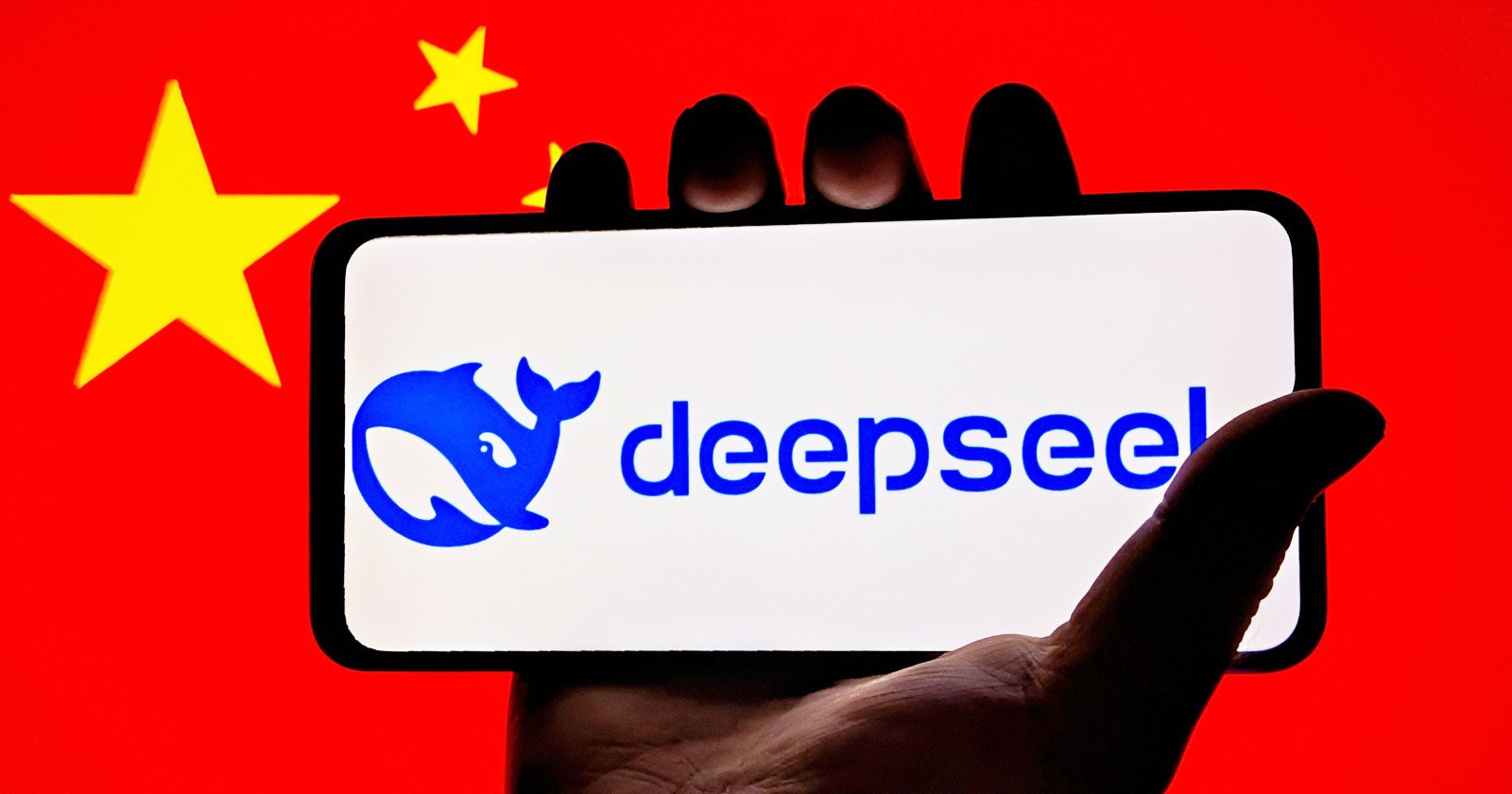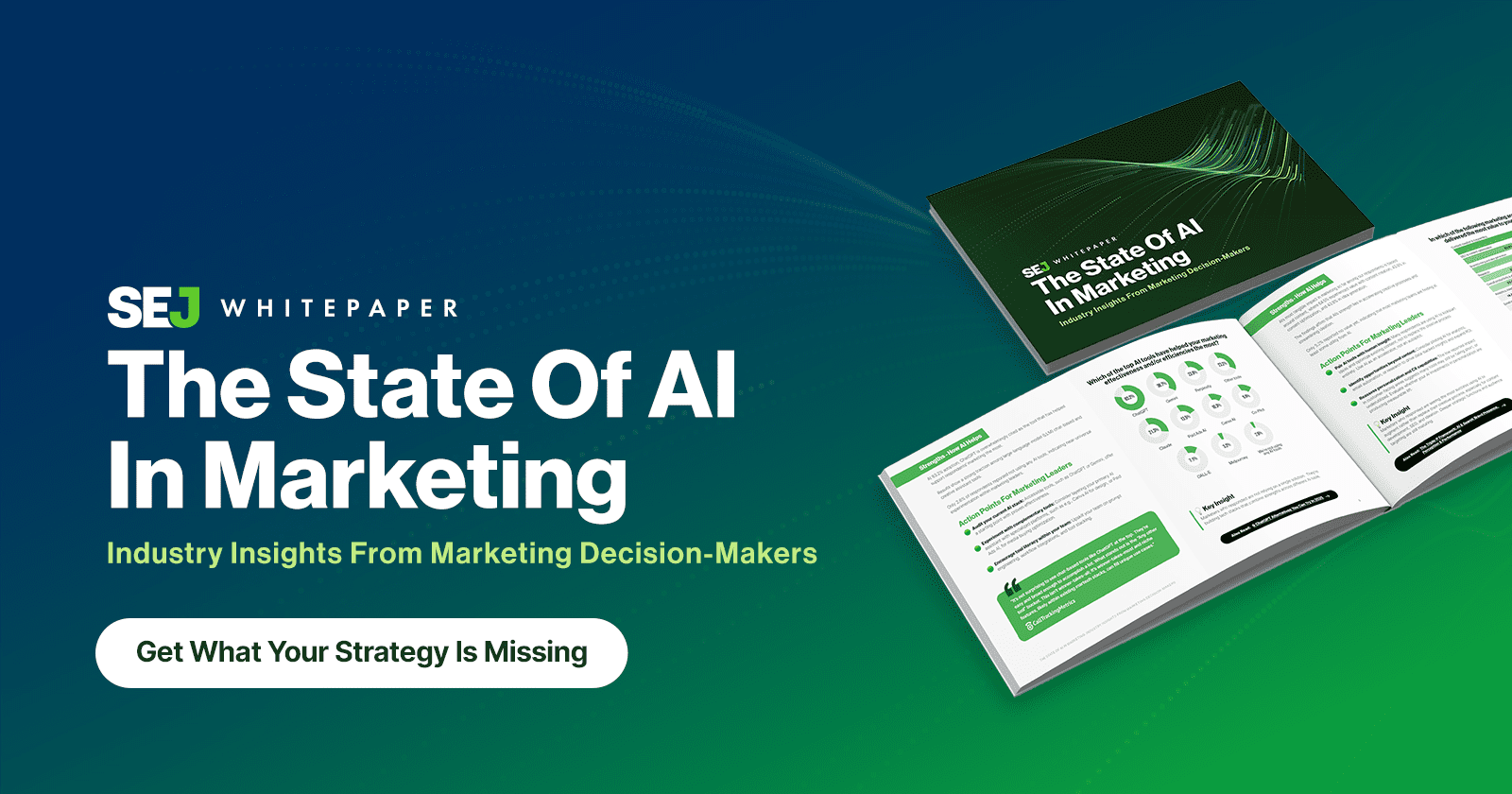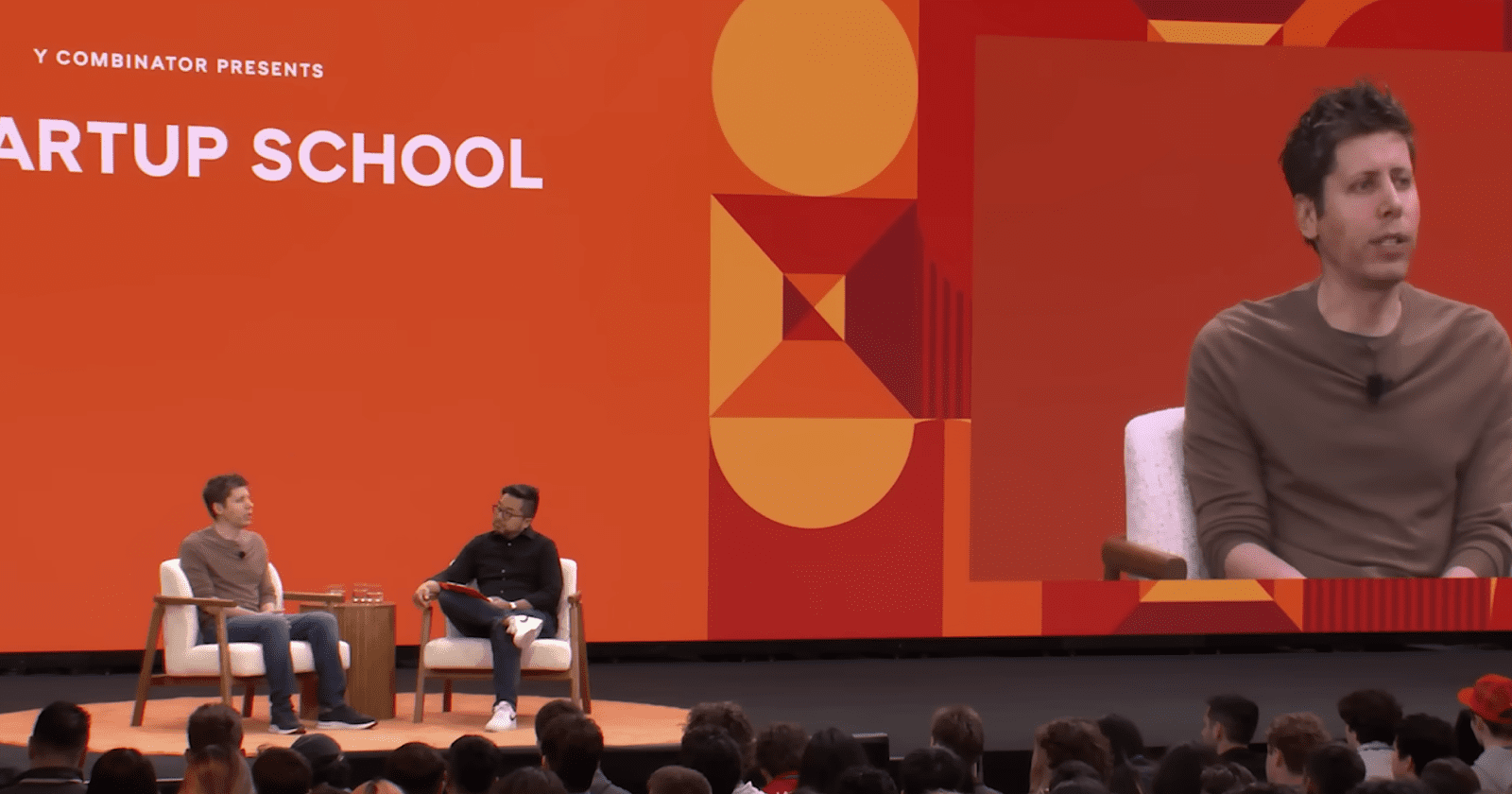This Is Why AI Won’t Take Your Job (Yet) via @sejournal, @SequinsNsearch

SEO died a thousand times only this year, and the buzzword that resonates across every boardroom (and let’s be honest, everywhere else) is “AI.”
With Google releasing several AI-powered views over the past year and a half, along with the latest take on its own SearchGPT rival AI Mode, we are witnessing a traffic erosion that is very hard to counteract if we stay stuck in our traditional view of our role as search professionals.
And it is only natural that the debate we keep hearing is the same: Is AI eventually going to take our jobs? In a stricter sense, it probably will.
SEO, as we know it, has transformed drastically. It will keep evolving, forcing people to take on new skills and have a broader, multichannel strategy, along with clear and prompt communication to stakeholders who might still be confused about why clicks keep dropping while impressions stay the same.
The next year is expected to bring changes and probably some answers to this debate.
But in the meantime, I was able to draw some predictions, based on my own study investigating humans’ ability to discern AI, to see if the “human touch” really has an advantage over it.
Why This Matters For Us Now
Knowing if people can recognize AI matters for us because people’s behavior changes when they know they’re interacting with it, as compared to when they don’t.
A 2023 study by Yunhao Zhang and Renée Richardson Gosline compared content created by humans, AI, and hybrid approaches for marketing copy and persuasive campaigns.
What they noticed is that when the source was undisclosed, participants preferred AI-generated content, a result that was reversed when they knew how the content was created.
It’s like the transparency on using AI added a layer of diffidence to the interaction, rooted in the common mistrust that is reserved for any new and relatively unknown experience.
At the end of the day, we have consumed human-written content for centuries, but generative AI has been scaled only in the past few years, so this wasn’t even a challenge we were exposed to before.
Similarly, Gabriele Pizzi from the University of Bologna showed that when people interact with an AI chatbot in a simulated shopping environment, they are more likely to consider the agent as competent (and, in turn, trust it with their personal information) when the latter looks more human as compared to “robotic.”
And as marketers, we know that trust is the ultimate seal not only to get a visit and a transaction, but also to form a lasting relationship with the user behind the screen.
So, if recognizing AI content changes the way we interact with it and make decisions, do we still retain the human advantage when AI material gets so close to reality that it is virtually undistinguishable?
Your Brain Can Discriminate AI, But It Doesn’t Mean We Are Infallible Detectors
Previous studies have shown that humans display a feeling of discomfort, known as the uncanny valley, when they see or interact with an artificial entity with semi-realistic features.
How this negative feeling is manifested physiologically with higher activity of our sympathetic nervous system (the division responsible for our “fight or flight” response) before participants can verbally report on or even be aware of it.
It’s a measure of their “gut feeling” towards a stimulus that mimics human features, but does not succeed in doing so entirely.
The uncanny valley phenomenon arises from the fact that our brain, being used to predicting patterns and filling in the blanks based on our own experience, sees these stimuli as “glitches” and spots them as outliers in our known library of faces, bodies, and expressions.
The deviation from the norm and the uncertainty in labeling these “uncanny” stimuli can be triggering from a cognitive perspective, which manifests in higher electrodermal activity (shortened as EDA), a measure of psychological arousal that can be measured with electrodes on the skin.
Based on this evidence, it is realistic to hypothesize that our brain can spot AI before making any active discrimination, and that we can see higher EDA in relation to faces generated with AI, especially when there is something “off” about them.
It is unclear, though, at what level of realism we stop displaying a distinctive response, so I wanted to find that out with my own research.
Here are the questions I set up to answer with my study:
- Do we have an in-built pre-conscious “detector” system for AI, and at what point of realistic imitation does it stop responding?
- If we do, does it guide our active discrimination between AI and human content?
- Is our ability to discriminate influenced by our overall exposure to AI stimuli in real life?
And most of all, can any of the answers to these questions predict what are the next challenges we’ll face in search and marketing?
To answer these questions, I measured the electrodermal activity of 24 participants between 25 and 65 years old as they were presented with neutral, AI-generated, and human-generated images, and checked for any significant differences in responses to each category.
My study ran in three phases, one for each question I had:
- A first task where participants visualized neutral, AI, and human static stimuli on a screen without any actions required, while their electrodermal activity was recorded. This was intended to measure the automatic, pre-conscious response to the stimuli presented.
- A second behavioral task, where participants had to press a button to categorize the faces that they had seen into AI- vs. human-generated, as fast and accurately as they could, to measure their conscious discrimination skills.
- A final phase where participants declared their demographic range and their familiarity with AI on a self-reported scale across five questions. This gave me a self-reported “AI-literacy” score for each participant that I could correlate with any of the other measures obtained from the physiological and behavioral tasks.
And here is what I found:
- Participants showed a significant difference in pre-conscious activation between conditions, and in particular, the EDA was significantly higher for human faces rather than AI faces (both hyper-realistic and CGI faces). This would support the hypothesis that our brain can tell the difference between AI and human faces before we even initiate a discrimination task.
- The higher activation for human faces contrasts with the older literature showing higher activation for uncanny valley stimuli, and this could be related to either our own habituation to CGI visuals (meaning they are not triggering outliers anymore), or the automatic cognitive effort involved in trying to extrapolate the emotion of human neutral faces. As a matter of fact, the limitation of EDA is that it tells us something is happening in our nervous system, but it doesn’t tell us what: higher activity could be related to familiarity and preference, negative emotional states, or even cognitive effort, so more research on this is needed.
- Exposure and familiarity with AI material correlated with higher accuracy when participants had to actively categorize faces into AI-generated and human, supporting the hypothesis that the more we are exposed to AI, the better we become at spotting subtle differences.
- People were much faster and accurate in categorizing stimuli of the “uncanny valley” nature into the AI-generated bucket, but struggled with hyper-realistic faces, miscategorizing them as human faces in 22% of cases.
- Active discrimination was not guided by pre-conscious activation. Although a difference in autonomous activity can be seen for AI and human faces, this did not correlate with how fast or accurate participants were. In fact, it can be argued that participants “second-guessed” their own instincts when they knew they had to make a choice.
And yet, the biggest result of all was something I noticed on the pilot I ran before the real study: When the participant is familiar with the brand or the product presented, it’s how they feel about it that guides what we see at the neural level, rather than the automatic response to the image presented.
So, while our brain can technically “tell the difference,” our emotions, familiarity with the brand, the message, and expectations are all factors that can heavily skew our own attitude and behavior, essentially making our discrimination (automatic or not) almost irrelevant in the cascade of evaluations we make.
This has massive implications not only in the way we retain our existing audience, but also in how we approach new ones.
We are now at a stage where understanding what our user wants beyond the immediate query is even more vital, and we have a competitive advantage if we can identify all of this before they explicitly express their needs.
The Road To Survival Isn’t Getting Out Of The Game. It’s Learning The New Rules To Play By
So, does marketing still need real people?
It definitely does, although it’s hard to see that now that every business is ignited by the fear of missing out on the big AI opportunity and distracted by new shiny objects populating the web every day.
Humans thrive on change – that’s how we learn and grow new connections and associations that help us adapt to new environments and processes.
Ever heard of the word neuroplasticity? While it might just sound like a fancy term for learning, it is quite literally the ability of your brain to reshape as a result of experience.
That’s why I think AI won’t take our jobs. We are focusing on AI’s fast progress in the ability to ingest content and recreate outputs that are virtually indistinguishable from our own, but we are not paying attention to our own power of evolving to this new level field.
AI will keep on moving, but so will the needle of our discernment and our behavior towards it, based on the experiences that we build with new processes and material.
My results already indicate how familiarity with AI plays a role in how good we are at recognizing it, and in a year’s time, even the EDA results might change as a function of progressive exposure.
Our skepticism and diffidence towards AI is rooted in the unknown sides of it, paired with a lot of the misuse that we’ve seen as a by-product of a fast, virtually unregulated growth.
The nature of our next interactions with AI will shape our behavior.
I think this is our opportunity as an industry to create valuable AI-powered experiences without sacrificing the quality of our work, our ethical responsibilities toward the user, and our relationship with them. It’s a slower process, but one worth undertaking.
So, even if, at the beginning, I approached this study as a man vs. the machine showdown, I believe we are heading toward the man and the machine era.
Far from the “use AI for everything” approach we tend to see around, below is a breakdown of where I see a (supervised) integration of AI to our job unproblematic, and where I think it still has no space in its current state.
Use: Anything That Provides Information, Facilitates Navigation, And Streamlines User Journeys
- For example, testing product descriptions based on the features that already reside in the catalog, or providing summaries of real users’ reviews that highlight pros and cons straight away.
- Virtual try-ons and enabling recommended products based on similarity.
- Automating processes like identifying internal link opportunities, categorizing intent, and combining multiple data sources for better insights.
Avoid: Anything That’s Based On Establishing A Connection Or Persuading The User
- This includes any content that fakes expertise and authority in the field. The current technology (and the lack of regulation) even allows for AI influencers, but bear in mind that your brand authenticity is still your biggest asset to preserve when the user is looking to convert. The pitfalls of deceiving them when they expect organic content are greater than just losing a click. This is the work you can’t automate.
- Similarly, generating reviews or user-generated content at scale to convey legitimacy or value. If you know this is what your users want to get more information on, then you cannot meet their doubts with fake arguments. Gaming tactics are short-lived in marketing because people learn to discern and actively avoid them once they realize they are being deceived. Humans crave authenticity and real peer validation of their decisions because it makes them feel safe. If we ever reach a point where, as a collective, we feel we can trust AI, then it might be different, but that’s not going to happen when most of its current use is dedicated to tricking users into a transaction at all cost, rather than providing the necessary information they need to make an informed decision.
- Replacing experts and quality control. If it backfired for customer-favorite Duolingo, it will likely backfire for you, too.
The New Goals We Should Be Setting
Here’s where a new journey starts for us.
The collective search behavior has already changed not only as a consequence of any AI-powered view on the SERP that makes our consumption of information and decision-making faster and easier, but also as a function of the introduction of new channels and forms of content (the “Search Everywhere” revolution we hear all about now).
This brings us to new goals as search professionals:
- Be omnipresent: It’s now the time to work with other channels to improve organic brand awareness and be in the mind of the user at every stage of the journey.
- Remove friction: Now that we can get answers right off the search engine results page without even clicking to explore more, speed is the new normal, and anything that makes the journey slower is an abandonment risk. Getting your customers what they want straight off the bat (being transparent with your offer, removing unnecessary steps to find information, and improving user experience to complete an action) prevents them from going to seek better results from competitors.
- Preserve your authenticity: Users want to trust you and feel safe in their choices, so don’t fall into the hype of scalability that could harm your brand.
- Get to know your customers deeper: Keyword data is no longer enough. We need to know their emotional states when they search, what their frustrations are, and what problems they are trying to solve. And most of all, how they feel about our brand, our product, and what they expect from us, so that we can really meet them where they are before a thousand other options come into play.
We’ve been there before. We’ll adapt again. And I think we’ll come out okay (maybe even more skilled) on the other side of the AI hype.
More Resources:
Featured Image: Stock-Asso/Shutterstock















